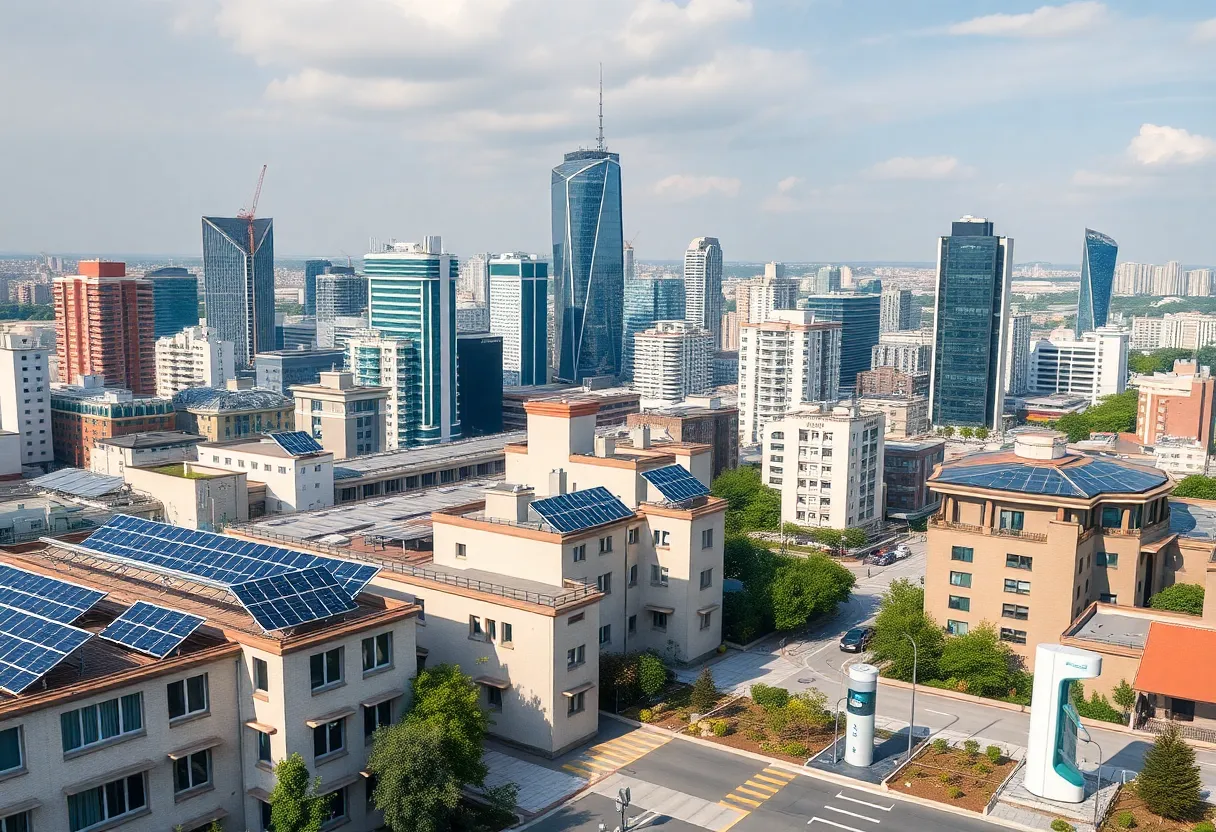News Summary
New York is set to become the first state to require all-electric buildings, banning gas stoves and fossil fuel appliances for new constructions. This initiative, following the All-Electric Buildings Act, aims to reduce carbon emissions and combat climate change. Starting at the end of the year, new buildings of seven stories or less must use only electric appliances, with a complete transition by 2028. While existing buildings are unaffected, this mandate could influence electrification policies nationwide.
New York is set to become the first U.S. state to mandate all-electric buildings as a ban on gas stoves, heaters, and other fossil fuel appliances for new residential and commercial buildings takes effect in phases by the end of the year. This groundbreaking initiative follows the enactment of the All-Electric Buildings Act, which was signed into law more than two years ago, and is seen as a significant step towards reducing carbon emissions and combating climate change.
Beginning on December 31, 2023, all new buildings that are seven stories or less will be required to utilize exclusively electric appliances, with the exception of certain large commercial or industrial properties. By December 31, 2028, this mandate will expand to include all new buildings, encompassing large commercial structures as well. However, specified types of buildings—including restaurants, hospitals, doctors’ offices, factories, and agricultural facilities—will be automatically exempt from these requirements.
The Fire Prevention and Building Codes Council has approved the necessary code changes to implement the statewide all-electric mandate. This decision aligns with New York City’s Local Law 154, which aims to significantly reduce carbon emissions from new buildings and started its phased implementation last year. The Local Law also imposes stringent limits on air emissions from the indoor combustion of fuels, all aiming to promote a shift towards electrification.
A recent ruling from a U.S. District Court dismissed a legal challenge to the mandate brought forth by trade groups and unions, including the New York State Builders Association. This legal decision has potentially solidified support for electrification policies, signifying a shift in the judicial landscape regarding local gas bans and their legal foundations. The ruling is especially important as it contrasts with a previous decision concerning Berkeley, California’s gas ban.
Approximately 32% of greenhouse gas emissions in New York state originate from buildings, underscoring the urgency of addressing this issue through legislative measures. Climate experts and legal analysts view New York’s all-electric mandate as a pivotal moment for electrification initiatives nationwide, suggesting that it may inspire other states and cities to pursue similar regulations to combat climate change.
Although the new regulations mainly target new construction, existing buildings are not impacted by these mandates. Property owners can continue to utilize gas for existing appliances, and they can replace old gas-powered appliances with new ones without facing restrictions. This ensures a smoother transition for those currently relying on gas in established buildings.
Developers of new buildings must comply with the regulations by installing electric appliances, including induction stoves and heat pumps, as part of their projects. The implementation of such appliances aligns with New York’s wider environmental goals of electrifying the state’s infrastructure and reducing reliance on fossil fuels.
As New York moves forward with this all-electric mandate, legal challenges are anticipated, following the precedent set by previous conflicts surrounding electrification efforts. The ongoing developments in this area may not only shape New York’s future building practices but could also set important precedents for similar policies across the country.
In summary, New York is pioneering a significant transformation in building regulations, marking a historic moment in the pursuit of environmentally friendly construction practices. As the state implements its all-electric mandate and phases out gas appliances, it stands at the forefront of the movement toward sustainable infrastructure, demonstrating the potential impact of legislative action on climate change mitigation efforts.
Deeper Dive: News & Info About This Topic
- CoStar: New Construction in New York State Must Be All Electric
- Wikipedia: Electrification
- BDC Network: Federal Judge Rules That Cities Can Ban Natural Gas in New Buildings
- Google Search: Natural Gas Ban in New Buildings
- New York Times: Gas Stoves Health Risks
- Google Scholar: Climate Change and Building Regulations
- The Cool Down: Ban on Natural Gas in New Buildings in New York
- Encyclopedia Britannica: Carbon Emissions
- Free Beacon: Trump Admin Formally Ends Biden’s War on Gas Stoves
- Google News: All-Electric Buildings

Author: STAFF HERE NEW YORK WRITER
The NEW YORK STAFF WRITER represents the experienced team at HERENewYork.com, your go-to source for actionable local news and information in New York, the five boroughs, and beyond. Specializing in "news you can use," we cover essential topics like product reviews for personal and business needs, local business directories, politics, real estate trends, neighborhood insights, and state news affecting the area—with deep expertise drawn from years of dedicated reporting and strong community input, including local press releases and business updates. We deliver top reporting on high-value events such as New York Fashion Week, Macy's Thanksgiving Day Parade, and Tribeca Film Festival. Our coverage extends to key organizations like the Greater New York Chamber of Commerce and United Way of New York, plus leading businesses in finance and media that power the local economy such as JPMorgan Chase, Goldman Sachs, and Bloomberg. As part of the broader HERE network, including HEREBuffalo.com, we provide comprehensive, credible insights into New York's dynamic landscape.





